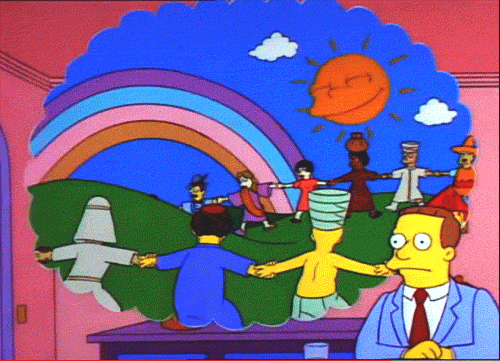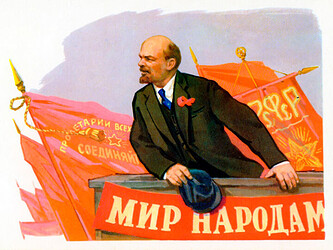What might convince you that it’s more than merely a local political problem? Like, what percentage of developed countries would need to be experiencing similar issues for you to suspect that the political problem may have deeper roots than you suspected?
Re: Sell me on the stock market
You can bankrupt institutional investors pumping Gamestop on reddit.
Yeah I’m not sure if this thread is extremely timely or actually obviated by the Ebin Maymay Stonks shenanigans.
Did you read that Atlantic article yet? There’s a bit that’s relevant to your question.
I did read it, didn’t find it terribly illuminating though. Wondering in particular why the anti-war sentiments of the Watergate Democrats faded so quickly, while the anti-regulatory sentiment didn’t.
So he made a point that the pro-business liberal, deregulatory political model was hailed as a success and shipped around the globe. Probably what’s sparked the rise in right and left wing anti-establishment populism around the globe. Both Marie le Pen and the yellow vests.
So the article documents the trend I was talking about, where no one in Washington gaf about regulating business, antitrust, or Wall Street, right? Do you agree that this trend directly led to the big financial crisis of 2008?
So, my solution is electing leaders who do care about antitrust, regulating wall street, and reigning in the concentrated power of capital. Which is what happened in the 1930s with FDR.
It was obviously a significant factor. I’m not entirely sold on the export model of political ideology. Like domino theory but with neoliberalism? Nothing’s ever that simple.
Seems to describe Blairites pretty well, right? I don’t know about the rest, I have basically zero knowledge about French or German or wherever else politics.
So anyway, do you agree that politicians no longer caring about that stuff is a political problem? It had a political solution in the 1930s, why can’t it have a political solution now?
Thatcher described Blair as her greatest accomplishment, not sure Maggie Thatch was taking notes from Washington (had already snatched the milk as Education Secretary by 1975).
So anyway, do you agree that politicians no longer caring about that stuff is a political problem? It had a political solution in the 1930s, why can’t it have a political solution now?
If you mean a purely political problem, such that it can be divorced from the economic structures that fostered it, then no.
Ok, I guess it’s time for you to reveal your solution to this problem then?
Ok, I guess it’s time for you to reveal your solution to this problem then?
More seriously, I’ve been asking and asking what’s so great about this market behemoth that eats money and occasionally destroys everything. You seem to agree emphatically that there isn’t anything particularly great about it, we only disagree about the underlying causes. FDR would be OK, as far as that goes, but it seems like it’s only a temporary solution, even if ‘temporary’ can mean ‘decades’.
Like, maybe, as I suggested in the OP, things like that are bad and we just shouldn’t have them?
I will just say it is going to be very unfortunate when the current lol asset bubbles burst under full Dem control.
No, I don’t agree at all. I think private firms freely and vigorously engaging in commerce and raising money through various financial instruments is great. There needs to be regulation of those firms on the question of externalities like environmental harm, and there needs to be regulation to prevent concentration of power that stifles competition. The finance sector has special regulatory challenges because it intersects with the money supply. So specific regulation has to be particularly tailored to those people. Like, the auto manufacturing industry can’t singlehandedly cause a global recession in the same way that the finance industry did.
This is (still!) the stock market you’re describing, or the Simple English Wikipedia account of ‘the markets’ generally. I think where we disagree is that you have confidence that the deregulatory creep that causes the problems you mention can be effectively guarded against in the long term, and I don’t. I think that capital will always seek to hamstring regulation and will, over a long enough timeline, always get its way.
I’m not saying it is a perfect solution, I’m saying it’s the best one I can think of. I still have no idea what you’re proposing.
I’m proposing not having ‘the markets’ in anything very much like either their current form or the regulated version you favour.
Right I don’t know what that looks like or how it works.

Less than perfectly certain myself, honestly.
I just caught up on the thread, and want to be sure I’m understanding the terms that we are using.
-
We are discussing all the markets that trade in stocks, securities, bonds, derivatives, insurance, reinsurance, etc. Not just what is being traded on the NYSE or other stock markets.
-
“Stock Market” = The world as it is written about and functions in economics text books. The assumption of rational actors, “free markets” = free(r) from regulation.
-
“Spock Market” = Those markets as they actually exist IRL. Valuations based upon perception rather than underlying fundamentals.
-
“Shock Market” = I re-read the OP, and I’m still not sure what differentiates it from the Spock Market.
I mean this in the interest of trying to better understand your position, not attack it:
Individuals collaborating to form cooperative organizations, and then trading shares of ownership in those organizations, is something that happens organically. If you don’t want that kind of trading to happen, what exactly are you proposing we ban? Partial ownership of organizations? Transfer of those ownership shares? Buying and selling those ownership shares?
